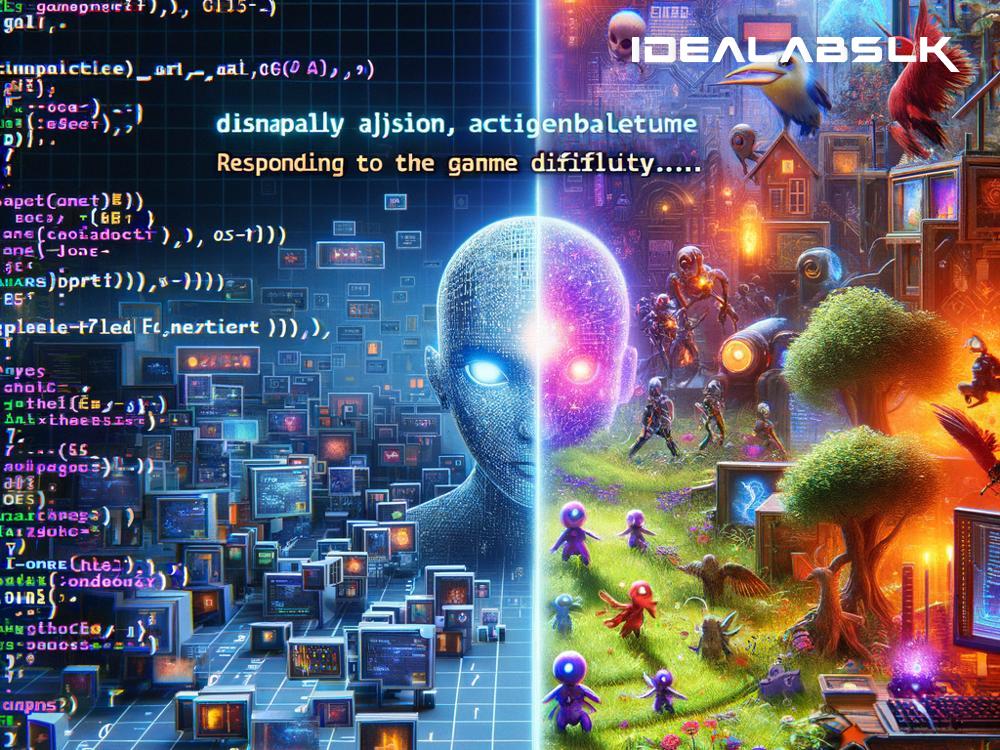AI-Powered Dynamic Difficulty Adjustment: How Games Will Adapt to Your Skill Level in 2025
In the ever-evolving world of video games, the future looks incredibly personalized and much more engaging. Specifically, we're on the verge of a transformative change in how games adapt to individual players, thanks to advancements in artificial intelligence (AI). By 2025, AI-powered Dynamic Difficulty Adjustment (DDA) is expected to become a standard feature in video games, revolutionizing the way games are experienced by players of varying skill levels.
What is Dynamic Difficulty Adjustment?
Dynamic Difficulty Adjustment, in simple terms, means the game automatically changes its difficulty level based on how well the player is performing. If you're breezing through levels like a hot knife through butter, the game could become more challenging to keep you engaged. On the other hand, if you're struggling, the game might ease up a bit to avoid frustration.
The AI Twist
AI takes DDA to a whole new level. Instead of relying on pre-set rules to adjust difficulty, AI can learn from a player’s behavior, making real-time decisions to tailor the gaming experience. This means no two playthroughs are the same; the game dynamically adapts to each player's unique play style and skill level.
Benefits of AI-Powered DDA
-
Better Engagement: Games will keep players in what psychologists call the "flow state" - the sweet spot between challenge and skill where engagement is highest. No more rage-quitting because a game is too hard, or boredom from it being too easy.
-
Accessibility: This technology paves the way for more players with different abilities to enjoy games. Whether you're a seasoned gamer or new to the world of gaming, AI-powered DDA ensures the game is just right for you.
-
Personalized Gaming Experience: Games will feel as though they were made just for you, offering a deeply personalized experience that caters to your preferences and skill level.
Challenges and Concerns
With every breakthrough, there are challenges and concerns. One of the main concerns with AI-powered DDA is the potential loss of designed difficulty curves that are crucial to the narrative and emotional journey of games. Developers are exploring how to balance AI adaptability with preserving the intended game experience.
Additionally, there's the challenge of transparency. Players might want to know and control how the game is adapting to them. Developers are considering ways to let players customize or opt-out of AI-powered difficulty adjustments.
Looking Ahead: Games in 2025
Imagine starting a game in 2025. The game observes how you play, learning your strengths and weaknesses. Maybe you're good at solving puzzles but not so great at combat. The game adapts, offering you challenging puzzles while making combat more manageable, ensuring you're always engaged but never overwhelmed.
AI-powered DDA will also contribute to more social and inclusive gaming. Friends of varying skill levels can play together, with the game adjusting to ensure everyone is contributing and having fun. This technology could bring people together, making gaming a more inclusive pastime.
Developer and Industry Impact
For game developers, embracing AI-powered DDA means rethinking game design from a one-size-fits-all approach to a more player-centric model. This shift could also open new revenue streams and markets, as more people find video games accessible and enjoyable.
The industry as a whole stands to benefit from increased player satisfaction, potentially leading to higher retention rates and positive word-of-mouth, which are gold in today's digital era.
Final Thoughts
By 2025, AI-powered Dynamic Difficulty Adjustment is set to change the gaming landscape, making games more accessible, engaging, and enjoyable for a broader range of players. This technology represents a shift towards more personalized and inclusive gaming experiences.
As we look forward to this exciting future, one thing is clear: the games of tomorrow will not only entertain us but also adapt to us, offering a unique journey for each player. And that's a level up for everyone involved.

